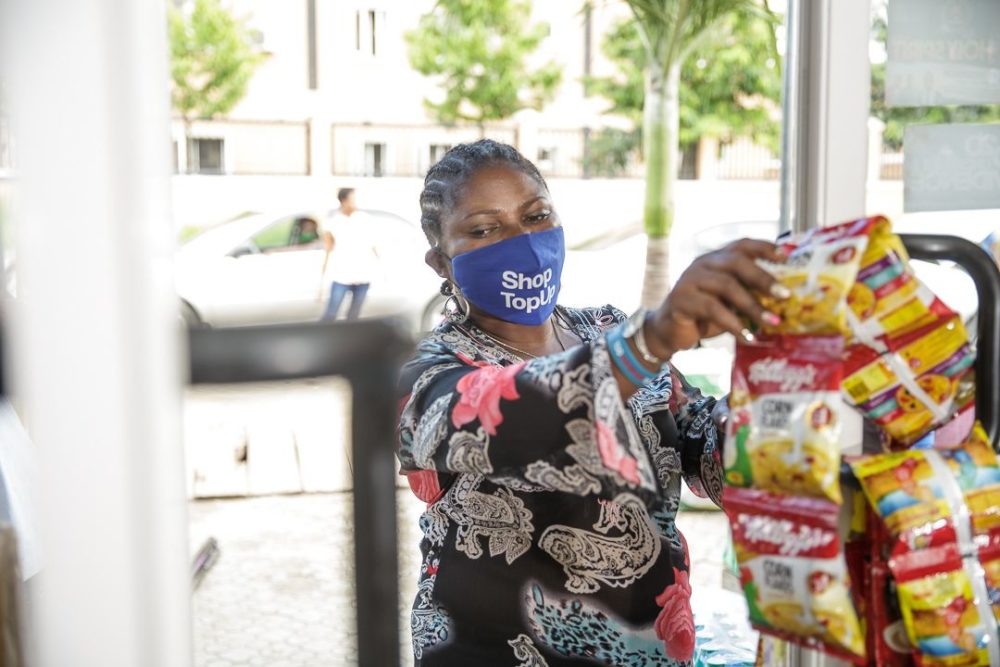Aside from oil wealth, much of Nigeria’s economic dynamism stems from bustling, informal retail supply chains that drive megacities like Lagos.
Their informality can be a carnival of free-market capitalism and ingenuity. But the drawback is how their fragmented nature can lead to loss, inefficiencies, and a dire lack of product traceability. Retailers rarely attain financial inclusion or income stability, while customers can’t guarantee reliable service quality. Global distributors and manufacturers, meanwhile, are left guessing as to who bought their products and why.
This reflects a wider African picture. According to the International Labour Office in Geneva, 85.8% of all employment on the continent is informal.
So, how to improve things for customers, retailers and distributors in such an informal context?
One way of formalizing this ecosystem for the benefit of retailers, distributors, and customers is through companies like TradeDepot, a B2B e-commerce platform for consumer goods. The company has accumulated an online network drawing together more than 40,000 micro-retailers. By doing so, it aims to make household supplies and groceries such as milk, soap, detergent, and other essentials more accessible and affordable for the informal urban retail networks it operates in. TradeDepot counts Nestlé, Unilever, and Arlo among its list of brand clients.
Retailers order and pay for goods using TradeDepot’s mobile apps (Android and WhatsApp) or a toll-free number and have them delivered directly to their stores via the company’s fleet of vans and tricycles. They can also order stock and manage their inventory online, with a number of ways to pay, including digital payments and cash. For consumer goods brands, TradeDepot enables direct-to-retail distribution. It also provides customer relationship management and data management software that allows suppliers to plan and monitor their sales routes in real time, as well as gain insights into trade and retail trends.
TradeDepot CEO Onyekachi Izukanne tells AFN his company has just raised $10 million in a pre-Series B equity round. The aim is to expand its network further, while ramping up partnerships with its big-name clients.
“The market existed in a state of comfortable blindness,” he says of international players operating in informal markets. But that’s changing fast, with distributors “beginning to see where things end up. That data and that visibility have been the biggest draw for these companies.”
Move into financial services
The round is a large one for the Nigerian foodtech and agtech scene, and has been co-led by Partech, International Finance Corporation (IFC), Women Entrepreneurs Finance Initiative (We-Fi), and MSA Capital. It follows a $3 million Series A led by Partech in 2018.
Izukanne now says TradeDepot will look to expand into other African cities and launch a suite of financial products and credit facilities. To cover risk, the company will harness its transaction data to determine a more real-time view of creditworthiness than traditional lenders who do not have access to that sort of information.
“These are established businesses that do business in volumes at least ten times the size of the loans you’re giving them out. The key thing is for the loan to always pay for the products – this keeps the default rates very low,” he says.
These sorts of financial inclusion bolt-ons have been popular combinations all across Africa’s agrifood supply chain, like with InspiraFarms, which offers loan schemes for its solar-powered cold storage and raised a Series A earlier this year; or Kenya’s Twiga, which scored $30 million in a Goldman Sachs-led Series B round in October 2019.
Izukanne expresses confidence that retailers across Nigeria have increased their revenue and improved their business outcomes as a result of better access to products. One retailer, his team says, grew sales by more than 15x. Another retailer who was barely breaking even and had seen no real growth in 15 years was able to increase her net monthly margin by almost 100% and hire three new employees, and is now considering expansion. These sorts of success stories underpin a high trajectory of growth at TradeDepot; it claims to activate a new store every three minutes, and receives a retailer order every 4 seconds, on average. The company says it also tripled its volume of trade in the last 12 months.
Female empowerment through retail networks
The team is also proud to point out a female empowerment angle to its success; more than 75% of the retailers on TradeDepot’s platform are female entrepreneurs.
TradeDepot will offer mentorship and opportunities to further support its predominantly female customer base by linking it with domestic and global markets.
“Women play a pivotal role in driving economies across Africa, but lack of access to capital, limited market linkages, cultural norms ,and other challenges often prevent them from achieving the success they want,” said Hanh Nam Nguyen, a program manager speaking on behalf of IFC as an implementing partner for We-Fi. The latter’s investment “will incentivize TradeDepot to build stronger women-led small and medium enterprise retailer and distributor networks, which will support them to become drivers of economic growth in their communities.”
Wale Ayeni, who heads up Africa VC investment at IFC, described TradeDepot as “a rising star in the African internet landscape, helping digitize a substantial underserved informal retail segment.”
Spotted news in African food and agtech? Drop a note to [email protected]




